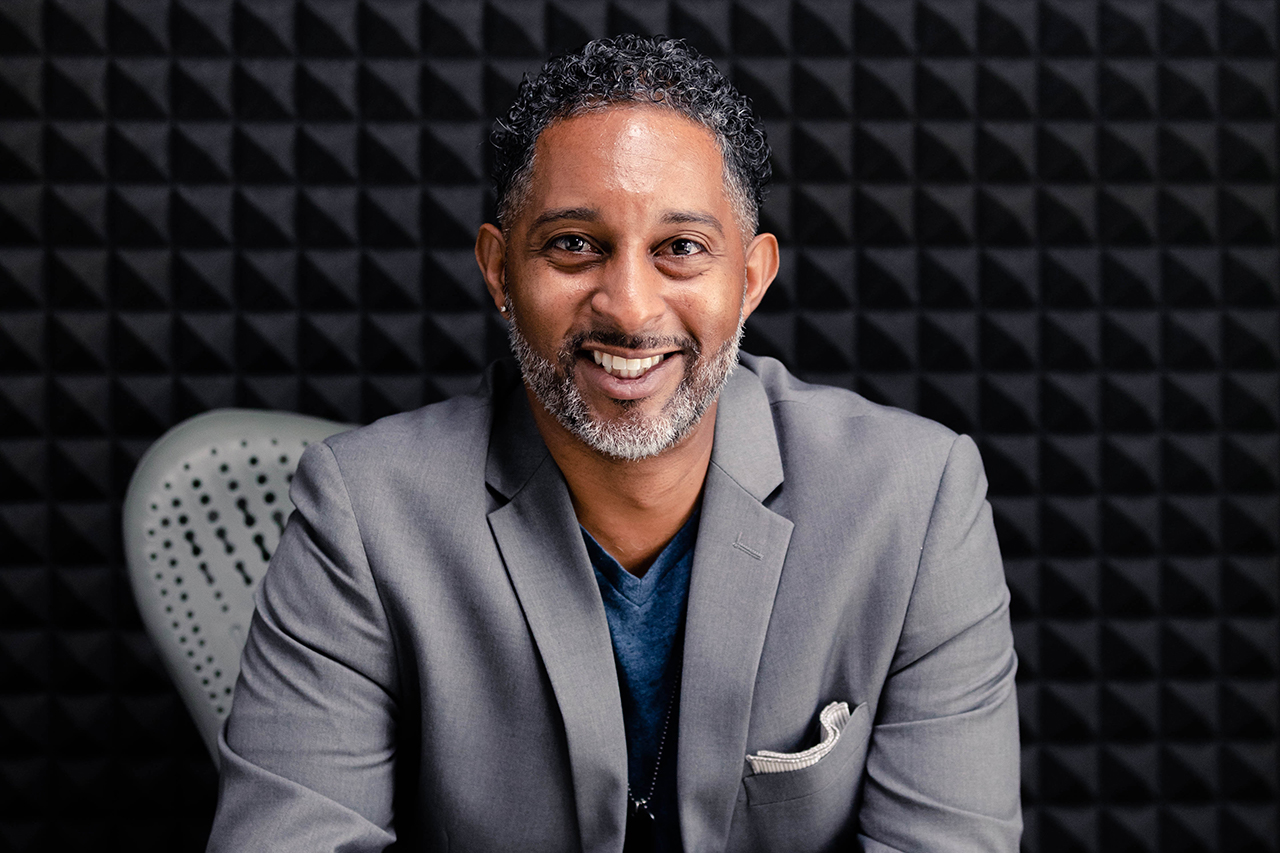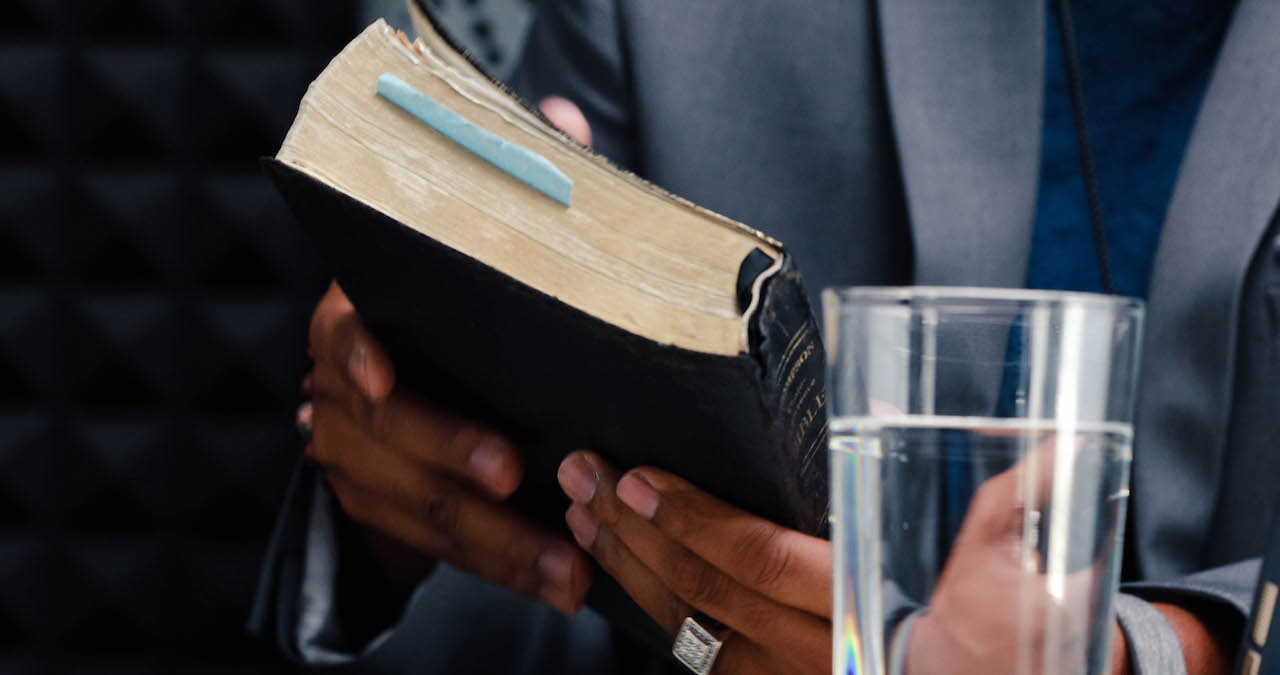+ Dr. Dwight Radcliff introduces Amos and Obadiah, deeply human books that speak strong words about coming judgement while also emphasizing God’s care and concern for all people.
 Dwight Radcliff Jr. is assistant professor of mission, theology, and culture, and director of the William E. Pannell Center for African American Church Studies. With over 20 years of ministry experience, he lectures in seminaries, universities, and conferences on topics ranging from church planting, culture, theology, preaching, social justice, and evangelism.
Dwight Radcliff Jr. is assistant professor of mission, theology, and culture, and director of the William E. Pannell Center for African American Church Studies. With over 20 years of ministry experience, he lectures in seminaries, universities, and conferences on topics ranging from church planting, culture, theology, preaching, social justice, and evangelism.

“We’ve got to see that God is concerned about the humanity of God’s people, and that God intercedes and God acts.” – Dwight Radcliff Jr.
Transcript
I brought my old-school Thompson Chain-Reference Bible that I got back in, jeez, I think 1997, 1998. So it is—it is archaic. It is from the ancient 1900s. But it was one of the first Bibles that I received as a licensed and ordained minister. But I have to be honest, I don’t use it as much as I probably should. I use more digital stuff. So we thank God for all the digital stuff.
I’m Dr. Dwight Radcliff. I am professor of mission, theology, and culture here at Fuller Theological Seminary in the School of Intercultural Studies. This morning, I’ll be introducing and talking about the books of prophecy of Amos and Obadiah.
Amos is one of the first eighth century prophets, and Obadiah we can’t exactly pinpoint, but most scholars believe that there’s probably some 200 years in between the ministries of these two individuals. But there is so much overlap and so much connectivity, so many things that bring them together.
One of the things that brings them together is they both speak of the Day of the Lord. And they speak of it in language that would have been contradictory for what Israel had probably hoped the Day of the Lord would be—hoping that the Day of the Lord would be this day of victory and this day of overcoming. But Amos and Obadiah both make it clear that the Day of the Lord is going to be a day of darkness and a day of judgment. In fact, Amos says that it’ll be like a person who’s running from a lion and gets away from the lion only to run into a bear. And then, leaving the bear, or managing to escape the bear, gets home, leans their hand against the wall, and is bitten by a snake.
When I read through Amos and Obadiah, aside from the overview of the work, aside from the Old Testament prophecy as it were, I also hear the humanity of the text. It seems to me that we often like to dismiss the humanity of the text to try to get at some larger divine purpose. But I think we’ve got to be reminded that the pinnacle of God’s divinity was God stepping into humanity for the sake of humanity. So I think that when I read—for me—when I read Amos, when I read Obadiah, I really hear the humanity of the passages. I hear that God is concerned about humanity, and I think that we ought to be concerned as well.
And, in Obadiah, whether we’re looking at the judgment of Edom, because of their predatorial practices towards Israel, or whether we’re looking in Amos at other nations and Israel being judged because of their predatorial actions, I think we’ve got to see that God is concerned about the humanity of God’s people. And that God intercedes and that God acts.
And I think that even further, when we read Amos and Obadiah, I see not just the humanity and the condition of God’s people, but I also hear the humanity of these individuals. Amos, who is this shepherd, a sycamore tree caretaker from Tekoa. Obadiah, who we know nothing about, and some would even argue, some have even made the argument that, we might even look at Obadiah as a title and not necessarily the name of an individual person. That this person, who pens Obadiah, who speaks these words of prophecy, sees themselves as an obadiah—someone who is a servant unto God.
But when we read these books, these harsh criticisms, these harsh critiques, these strong words, they come from such humble vessels. And I think that in a day and time that we live in, so many of our institutions and our churches, they need to hear prophetic words, they need to hear strong words of correction. But I think that we also tend to highlight and elevate to superstar status practitioners, academics. I think Amos and Obadiah remind us that we’re just sycamore tree caretakers. We’re just shepherds from Tekoa, trying to do what God has called us to do.
When I read Amos and Obadiah, I hear a mandate that we’ve got to carefully hear all of God’s word, that we can carefully speak all of God’s word, that we might have care for all of God’s people.
